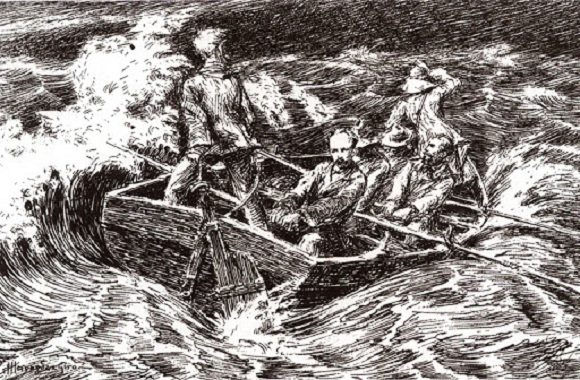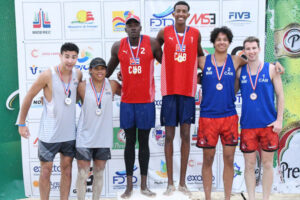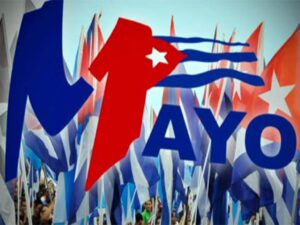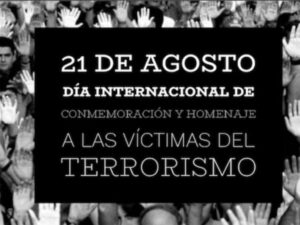On 11 April 1895, Martí wrote in his campaign diary: «We arrived at a pebbly beach, La Playita (at the foot of Cajobabo). I stayed in the boat the last one to empty it. I jump in. Great joy». This entry shows the Apostle’s feelings on reaching Cuban soil to join the war effort, which was a complicated process with various inconveniences along the way.
Martí arrived with Máximo Gómez, who wrote in his diary:
«It is now 10 o’clock at night and we have been able to get close to land – but it was not possible for us to disembark, as the rocks are cut off at the edges and rise sharply, and the sea fights furiously – and we continue to coast a little. Fortune brought us to a bend, «La Playita». There we steered our boat, and as if by enchantment we found ourselves on land; almost from the same boat we passed to the Cuban shore, at half past ten in the evening on the 11th of April».
The landing of the six expeditionaries on 11 April 1895 was thus recorded in the campaign diaries of its main leaders. It was the culmination of a great effort, full of complexities, by which the war for independence in Cuba had begun on 24 February 1895 and which its leadership joined. Antonio Maceo had already arrived via Duaba on 1 April and now the General-in-Chief and the Delegate joined in. The process of getting to that point went through difficulties such as the failure of the Fernandina Plan, when the US authorities seized part of the resources of the expedition already prepared in January, and then the great effort and even changes of plans to reach the uprising of 24 February and the incorporation of the main leaders. For Martí, in turn, it was a great victory because he achieved his goal of joining the territory at war.
José Martí, the great leader of that process, moved in an environment in which many felt that he should remain abroad to secure support and supplies, while he felt that his first duty was to be on the battlefield in Cuba. Máximo Gómez was among those who supported the idea of his remaining with the emigrants and, when the expeditions were being prepared for the incorporation of the leadership once the war had begun, at which time Martí was with the Generalissimo on Dominican soil, it was agreed that the Delegate should return to New York to continue his work with the emigrants, which led to discussions but which Martí finally accepted so as not to break the consensus, the necessary unity; however, a fortuitous event halted this step: a newspaper in the capital, El Listín Diario, on 9 March reproduced a news item from The New York Herald, apparently inaccurately, that Martí and Gómez were already in Cuba, which Martí reported along with the decision that he was coming.
Martí’s position on joining the war was based on conviction, as he expressed in a letter to the Dominican Federico Henríquez y Carbajal on 25 March, to whom he spoke of the position of Gómez and others and explained his views:
«I was dying of shame – apart from my conviction that my presence in Cuba today is at least as useful as outside – when I believed that at such a risk I could convince myself that it was my duty to let him go alone, and that a people allows itself to be served, without a certain disdain and detachment, by one who preached the necessity of dying and did not begin by putting his life at risk. Wherever my greatest duty lies, inside or outside, I will be there. Perhaps it is possible or obligatory for me, as it seems to this day, to fulfil both (…) I evoked the war: my responsibility begins with it, instead of ending with it».
In addition to expressing to his Dominican friend his absolute conviction of his duty to the war, he commented on the possibility that he might have to alternate between the two scenarios and also presented him with the more immediate task of preparing the organisation that this conflict should have:
«Perhaps it may contribute to the primary necessity of giving to our reviving war a form which carries in visible germ, without useless minutiae, all the principles indispensable to the credit of the revolution and the security of the republic. The difficulty of our wars of independence, and the reason of their slow and imperfect efficacy, has been, more than in the lack of mutual esteem of their founders and in the emulation inherent in human nature, in the lack of a form which at once contained the spirit of redemption and decorum which, with the active sum of the impetus of minor purity, promote and maintain the war, and the practices and persons of war.
Martí foresaw another difficulty, but one that would come after emancipation and which referred to social differences and their expression in the government that would be established, based on the experiences in Latin America; nevertheless, the immediate task was to organise the war and already, with the clear decision to participate in it, he proposed to work on it.
That same day, 25 March, he would sign with Gómez the document «The Cuban Revolutionary Party to Cuba», known as the Montecristi Manifesto, which would be the public programme of the revolution, and he wrote farewell letters to his mother and son, in which he ratified his convictions and values, as when he told Doña Leonor that a man’s duty is where he is most useful. To Gonzalo de Quesada and Benjamín Guerra he also wrote: I, perhaps I can contribute to ordering the war in such a way that it will carry the republic inside without hindrance, perhaps I must, with bitter courage, obey the will of war, and my conscience, and return to embrace them. At the same time he sent them indications of tasks to be carried out, while affirming: I will do what my country commands me to do. Still on 10 April, he wrote to the two Cubans and told them: The greatest war we are fighting is a war of thought: let us win it with thought, in which the newspaper Patria was very important.
With these convictions, with this decision, Martí arrived at Playita de Cajobabo on 11 April 1895, in a boat in which he carried the bow oar and in an act he described as «Dicha grande», because he was doing his duty.




